When we think about artificial intelligence today — from chatbots and smart assistants to self-driving cars and generative tools like ChatGPT — it’s easy to forget that AI has roots going back nearly a century. The question who created AI doesn’t have a single answer, because the development of artificial intelligence is the result of contributions from many brilliant minds across different disciplines over several decades.
This article explores the origin of AI, the key people who shaped its development, the milestones that led to modern systems, and how those foundations influence the way AI is used today — especially in web development, automation, and digital marketing strategies supported by companies like Best Website Builder Group.
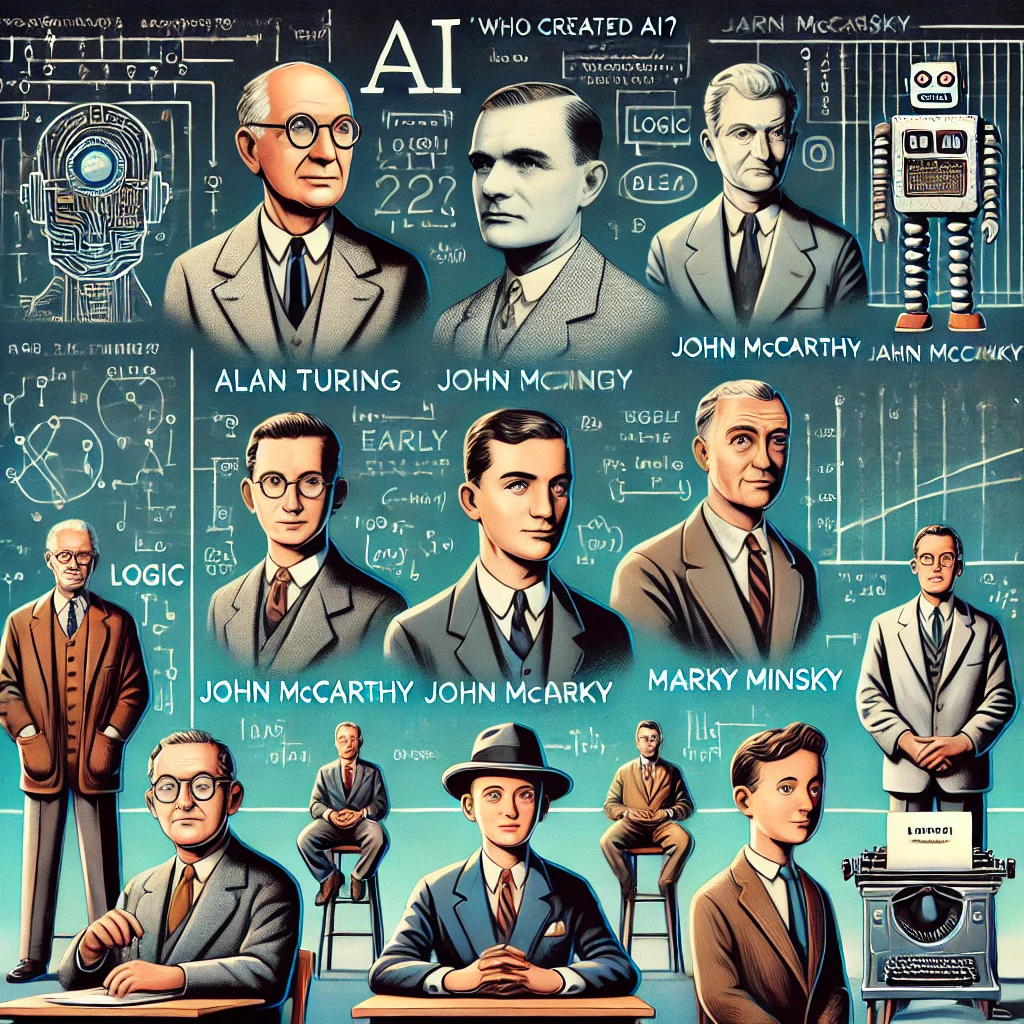
The Foundational Concepts: Before Computers
Long before computers were invented, philosophers and mathematicians speculated about machines that could “think.”
- Gottfried Wilhelm Leibniz (1600s) believed that all reasoning could be reduced to a form of symbolic logic.
- George Boole (1800s) developed Boolean algebra, forming the mathematical framework that would later influence computer logic.
- Alan Turing (1930s–1950s) is perhaps the most famous early contributor. His concept of a “universal machine” laid the groundwork for digital computing. His 1950 paper “Computing Machinery and Intelligence” asked the essential question: “Can machines think?”
Turing’s Turing Test, proposed as a way to measure a machine’s ability to exhibit human-like intelligence, remains a benchmark for AI systems today.
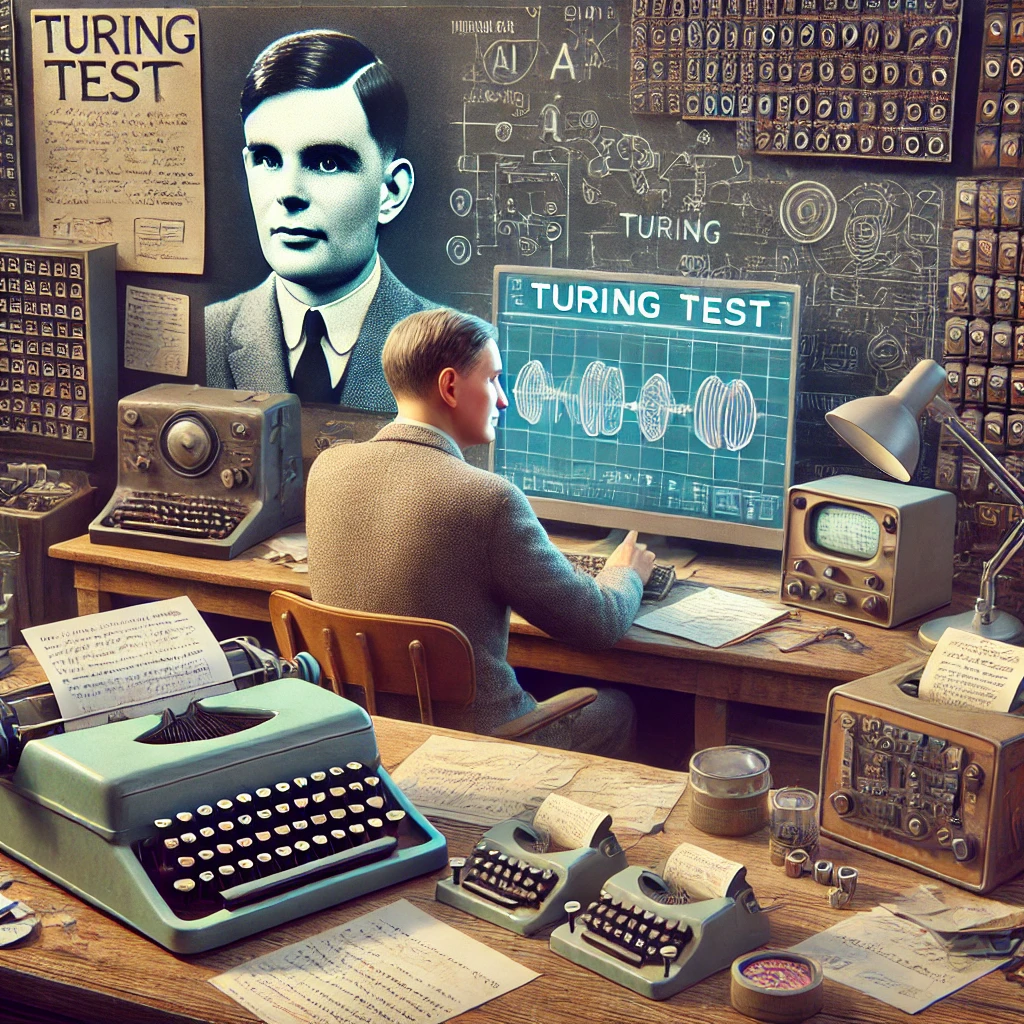
The Birth of AI: The 1956 Dartmouth Conference
The formal birth of AI as a field occurred in 1956, during a summer research project at Dartmouth College in Hanover, New Hampshire.
This event, known as the Dartmouth Conference, brought together some of the most important early minds in AI:
- John McCarthy (credited with coining the term artificial intelligence)
- Marvin Minsky
- Nathaniel Rochester
- Claude Shannon
These pioneers believed that “every aspect of learning or any other feature of intelligence can in principle be so precisely described that a machine can be made to simulate it.” Their bold proposal set the stage for the next 70+ years of development.
So, when asking who created AI, John McCarthy is often named as the person who coined the term, but it was truly a team effort — and an ongoing one at that.
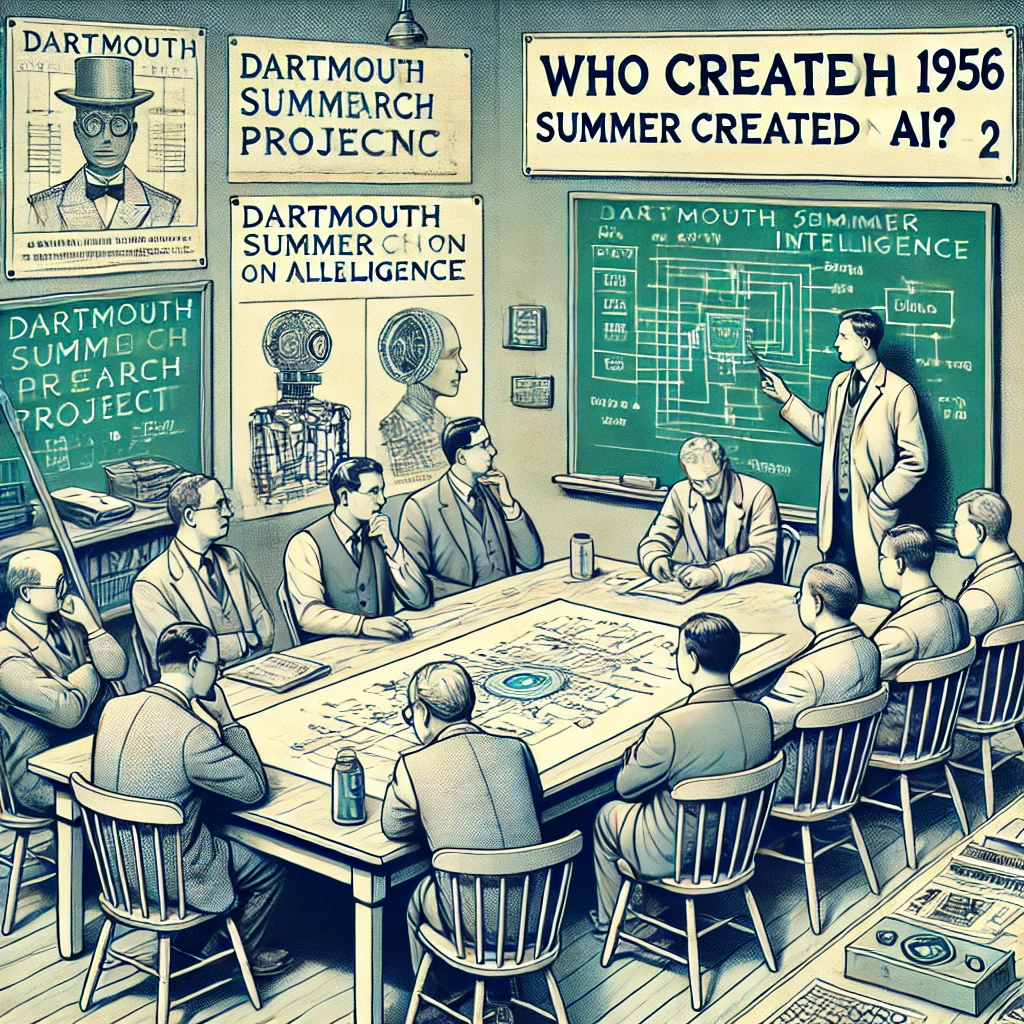
Early Breakthroughs in AI
Following the Dartmouth Conference, several key developments emerged:
- 1950s–60s: Early programs could solve algebra problems, prove logic theorems, and play games like checkers.
- 1970s: The first “expert systems” appeared — programs that used knowledge bases to solve specific problems (e.g., medical diagnosis).
- 1980s: Machine learning techniques began to emerge, focusing on algorithms that could learn from data.
- 1997: IBM’s Deep Blue beat world chess champion Garry Kasparov — a watershed moment for symbolic AI.
- 2011: IBM Watson won Jeopardy! against human champions, showing the power of natural language processing.
- 2012–Present: Deep learning, driven by neural networks, exploded in popularity. Google, Facebook, and Microsoft poured billions into AI research.

The Key Figures in AI Development
While there are hundreds of notable contributors, a few names stand out when we ask who created AI:
- John McCarthy – Coined the term “Artificial Intelligence” and helped create the LISP programming language, widely used in early AI.
- Alan Turing – Laid the theoretical foundations for computer science and AI.
- Marvin Minsky – Co-founder of MIT’s AI Lab; a philosopher of machine consciousness.
- Geoffrey Hinton – Considered the “Godfather of Deep Learning”; instrumental in modern neural networks.
- Yoshua Bengio and Yann LeCun – Alongside Hinton, these researchers made deep learning scalable and practical, contributing to modern AI tools.
The work of these figures is what makes systems like ChatGPT, Midjourney, and DALL·E possible — tools that now power much of the AI-enhanced work we do at Best Website Builder Group.
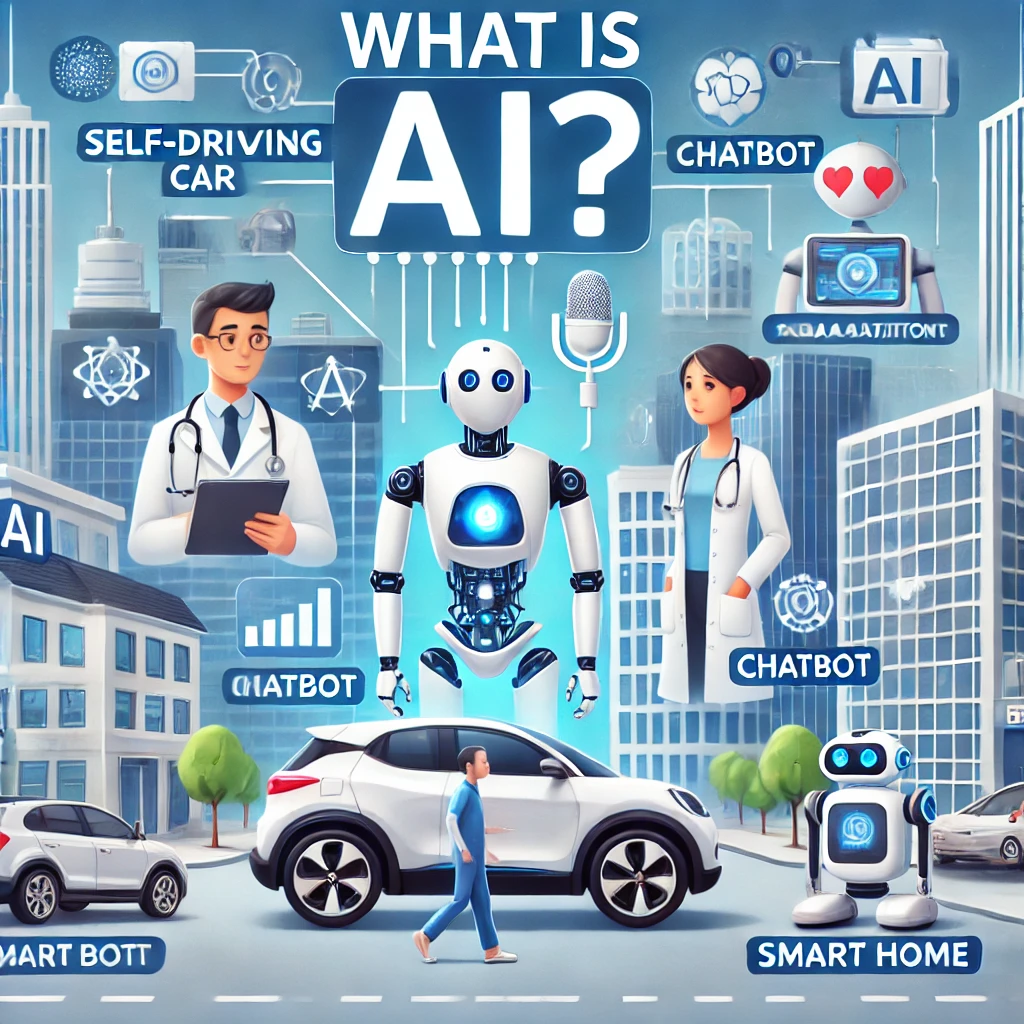
AI’s Evolution into Everyday Technology
Today, AI powers search engines, navigation apps, voice assistants, predictive keyboards, social media algorithms, and eCommerce personalization. It’s also revolutionizing business functions through:
- AI content generation
- Automated customer support
- Smart web design
- Predictive marketing analytics
- AI-powered development tools
What began as a theoretical field of logic and philosophy has transformed into one of the most commercially valuable technologies in the world. According to McKinsey, AI could deliver up to $4.4 trillion in global economic impact annually.

OpenAI and the Rise of Generative AI
One of the most significant contributors to the modern AI landscape is OpenAI, the organization behind ChatGPT. Founded in 2015 by Elon Musk, Sam Altman, and others, OpenAI set out to build artificial general intelligence that benefits humanity.
In 2022, ChatGPT 3.5 and then GPT-4 went viral, showing the general public the power of large language models — AI systems trained on vast amounts of text to answer questions, write content, and simulate conversation.
These tools are now integrated into everything from Microsoft Office to CRM systems and digital agencies like ours — where AI is used to scale client output without sacrificing quality.
Why Understanding AI’s Origins Matters for Businesses
Knowing who created AI is more than just a history lesson. It helps you understand:
- Where AI is going
- What risks are worth planning for
- How foundational ideas shape today’s tools
- What separates truly intelligent tools from basic automation
At Best Website Builder Group, we don’t treat AI as a trend — we implement it with precision, context, and strategy, drawing on its legacy and best practices to build powerful solutions for websites and marketing systems.

AI Isn’t Finished — It’s Just Getting Started
AI is still evolving. Research is ongoing into areas like:
- Artificial General Intelligence (AGI) – a system that can learn anything a human can
- Explainable AI (XAI) – AI that can justify its decisions
- AI ethics and alignment – ensuring systems operate fairly and transparently
- Multimodal AI – blending text, image, audio, and video into a single interface
While no single person can claim to have created AI alone, the field has grown into a vast, interdisciplinary effort involving thousands of researchers, developers, ethicists, and business leaders worldwide.
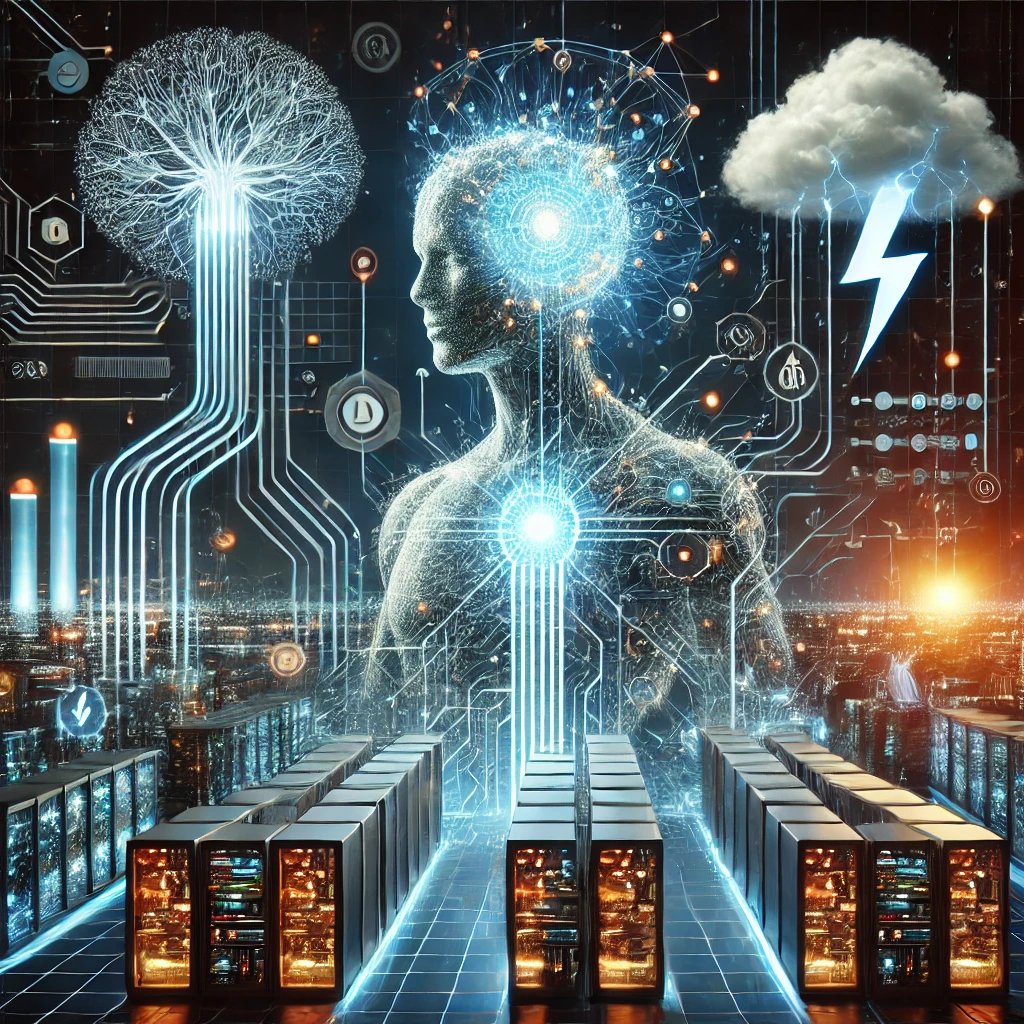
Conclusion
So, who created AI?
The answer is: no one person. It’s the product of decades of intellectual progress — from Alan Turing’s thought experiments to John McCarthy’s vision, from early expert systems to modern neural networks, and from elite research labs to widespread public adoption.
Today, AI is no longer a tool of the future — it’s shaping how we build websites, write code, design marketing campaigns, and scale operations. At Best Website Builder Group, we embrace that legacy, building intelligent systems rooted in both technology and business outcomes.
Understanding where AI came from helps us make better decisions about how to use it moving forward — and that’s something every modern business owner should care about.
